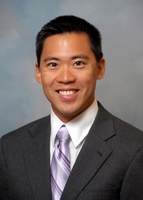by Sharon Fleshman
Back when I used to advise mostly undergraduate students, I would encourage first-year students to get settled academically and socially and to take advantage of the numerous extracurricular and student leadership opportunities at Penn. For the most part, there was no need for them to be preoccupied about career decisions at that early stage. However, I now find myself working with a lot of graduate students who are in one-year master’s programs. In other words, students who are in their first year are also in their last year. If you are one of those students, it can be a challenge to juggle your coursework, field placements/internships (in some cases) and the job search.
As you’ve likely discovered, your time at Penn will feel like a sprint. In a race, pacing is critical. On one hand, you do not want to exhaust yourself by starting out too quickly. Don’t immerse yourself in career planning to the neglect of your studies or building relationships with classmates. On the other hand, it is not a good idea to have such a slow pace to start that you wait too long to pick up speed.
To get started, I would strongly suggest getting familiar with the Career Services website, which has many resources that you can access at any time. Here are some other tips that I hope will help you to make the most of your fall semester:
Join a Career Services graduate student distribution list so that you receive timely e-mails about programs, events and job opportunities related to your career goals.
Make sure that you are aware of the timetables of various industries as it relates to hiring. While many organizations hire on a just-in-time, as needed basis in the spring, others may begin their recruiting process in the fall. For instance, many business and technical companies use On-Campus Recruiting in the fall. As you can see from the most recent blogs, a number of career fairs are held in the fall as well. Government agencies often have structured programs that may require early application. See our Make an Impact webpage for more information on opportunities in the federal government.
Tweak your resume so that it will be easy to update and ready when you start applying for jobs. The Career Services website has useful advice on resumes as well as resume samples based on your academic program or career interest.
Start researching career options and develop a list of preferred employers and job functions. Check out the Career Exploration section of our website. Sometimes it can also be helpful to look at job descriptions to determine what is ideal to you. To help you with this, the Career Services website lists links to job listing and company/organization websites, classified by career field. Attend career services programs that are relevant to careers that interest you. The Fall 2010 program calendar for graduate students is available here.
Start building your network. As you begin to get a sense for the careers that you want to pursue, you should make plans to speak with people who are in those careers and can provide perspective and guidance. The Penn Alumni Career Network and LinkedIn are two great places to start, particularly with informational interviewing.
Start planning for recommendation letters as necessary. While many employers request contacts for references by phone, there are some fields, such as K-12 teaching, that require letters of recommendation. If your chosen career field requires a letter of recommendation or you anticipate pursuing doctoral studies at some point, start thinking about potential recommenders, including professors or field supervisors who you will encounter this fall. Advice on requesting letters is available on our website. For online storage of confidential recommendation letters, Career Services has partnered with Interfolio. If you plan on applying for additional graduate school in the near future, speak with one of our Pre-Grad Advisors.
Get Organized. Even what I’ve mentioned above may seem overwhelming in terms of getting started. Try to schedule your career planning so that you can be sure it’s not taking up too much (or too little) space on your calendar. Have some kind of system in place based on what works best for you. For example, you might decide to dedicate a couple of hours each week to researching career options and conduct at least two information interviews per month.
Talk to a Career Services advisor. It is often helpful to have a listening ear as you brainstorm about career options and networking/job search strategies, or make decisions about job offers. It is always necessary to have a second pair of eyes as you put the finishing touches on that resume. Perhaps you just need some assistance in getting organized. Wherever you find yourself in the career planning process, be assured that Career Services counselors are available to help you as you prepare to cross the finish line into next phase of your career.










